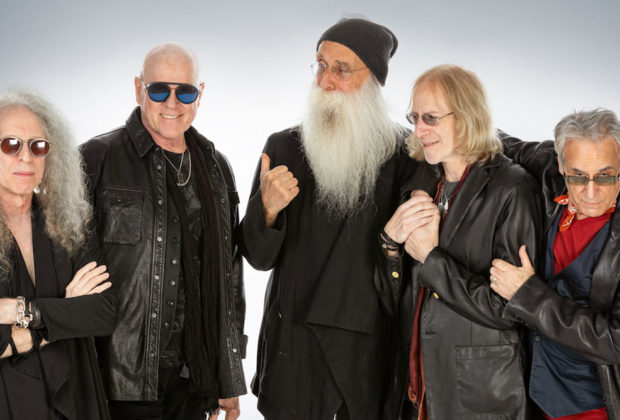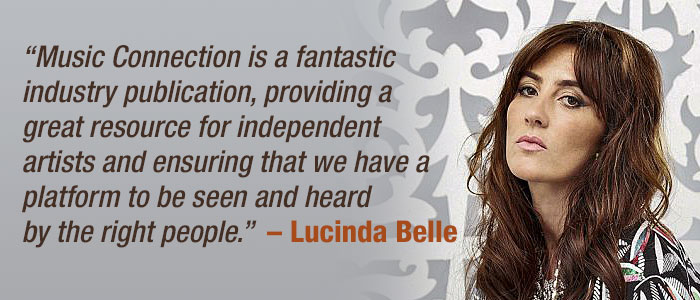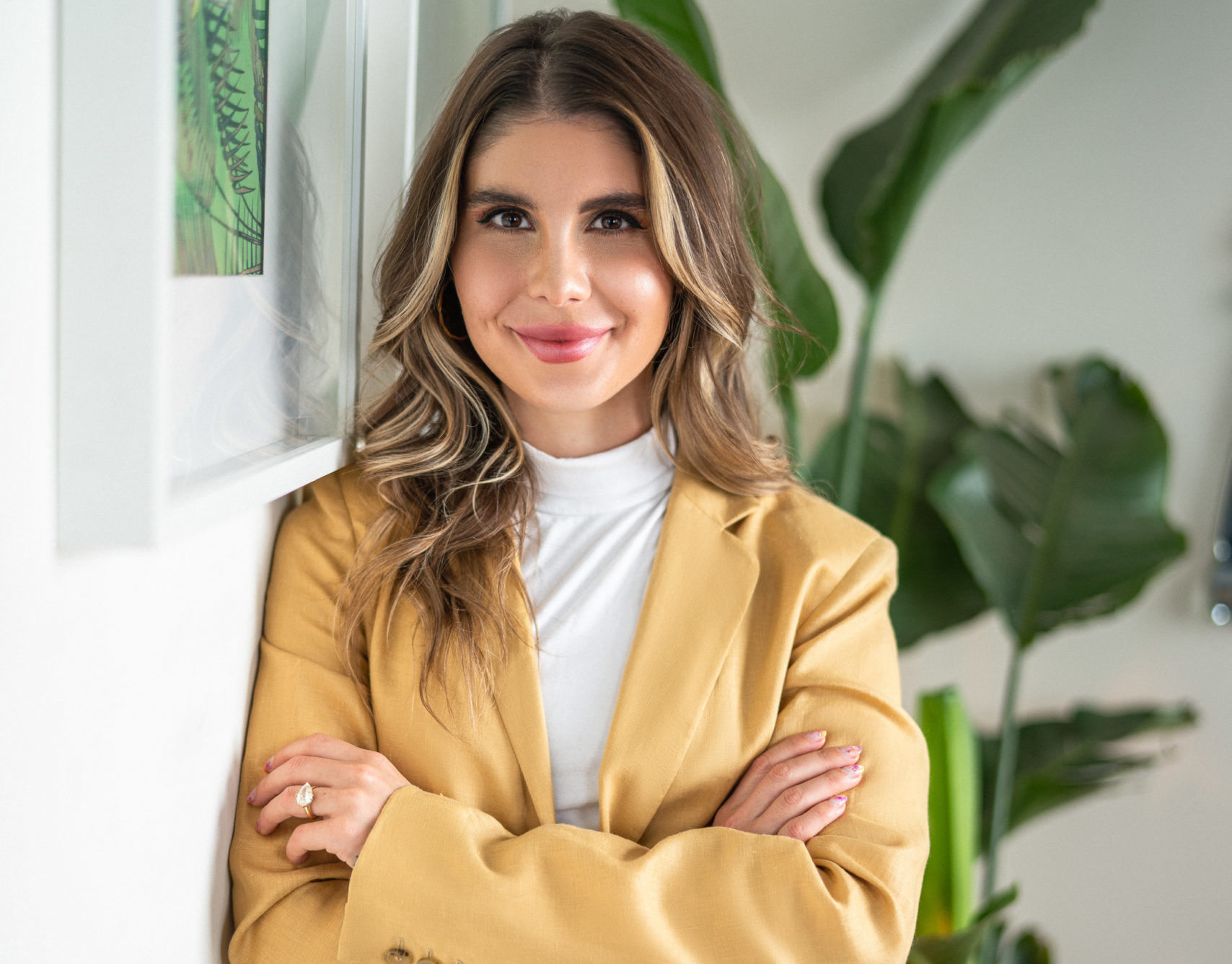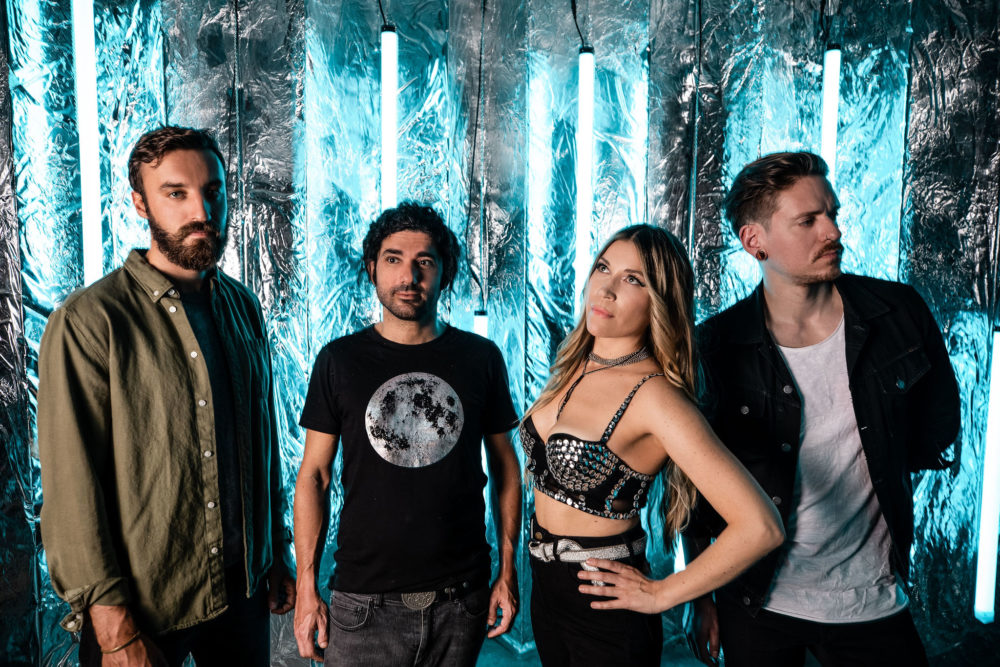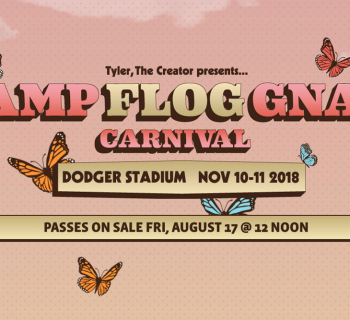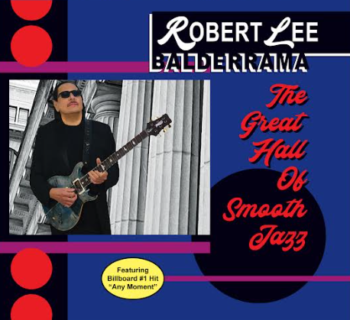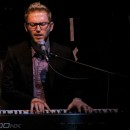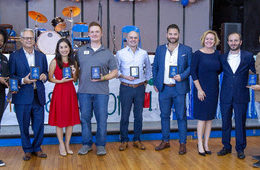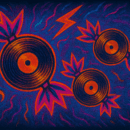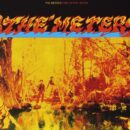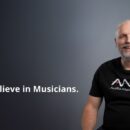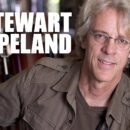Stevie Nicks, Jackson Browne, Carole King,
Linda Ronstadt, James Taylor, Keith Richards,
Crosby, Stills & Nash, Don Henley, Warren Zevon,
et al. all have one thing in common—they’ve all
collaborated or have co-written with members of
The Immediate Family.
Guitarist/singer-songwriter/producer Danny Kortchmar, drummer-producer Russ Kunkel, guitarist/singer-songwriter/producer Steve Postell, bassist Leland Sklar and guitarist/singer-songwriter/producer Waddy Wachtel comprise the legendary quintet. Since the early ‘70s, they’ve been on the ground floor of more hits than anyone can imagine. But turn on classic rock and pop radio and you’re sure to hear gems like Warren Zevon’s “Werewolves of London” (co-written by Wachtel), Jackson Browne’s “Somebody’s Baby” (co-written by Kortchmar) or Don Henley’s “Dirty Laundry” (also co-written by Kortchmar). Now these industry vets have decided to step out in the spotlight under their own banner. The eponymously titled full-length release The Immediate Family (Quarto Valley Records) features a dozen original tracks of rich and well-defined rock, blues, pop and Americana-flavored fare that will surely connect with those who seek, or have missed, this collective’s unique brand of classic lyricism and quality songs.
Music Connection: You have obviously all known each other and worked together for many years. Why was now the right time to form The Immediate Family?
Danny Kortchmar: It just happened to be that way. I got a record deal from a label in Japan to make a solo album. I, amazingly, realized Russ Kunkel and Lee Sklar were in town, which is rare because they’re two of the most in-demand musicians ever. So, I started with them. Waddy came in later because he was on the road. But it just all came together. And I realized it would be way more fun to be part of a band than just a solo project. And everyone, amazingly, wanted to do the same thing. Why it happened now? It was just the time for it to happen.
Waddy Wachtel: Danny did the record and then got offered a tour of Japan. And he said he couldn’t do it without you guys. How about we make a band? And we all went “What a natural perfect idea.”
MC: How did you go about making selections for what songs would be on your debut album?
WW: You know, the cream rises to the top. There were songs we were dying to do. There were obvious choices, really. The (Warren) Zevon composition “Things to Do In Denver When You’re Dead” that I co-wrote was a surprise to me. We love doing it and it turned out to be a perfect choice for the record. The other tunes we had been working on and writing together, specifically aiming at this project. So it wasn’t without some concentrated focus that the songs wound up on the album.
DK: Once we got going and had a band Waddy and I realized we had an outlet for our stuff. In other words, we realized if we write good songs they could be recorded right away by this unbelievable great band that we’re now in. That really turned me on and gave me great impetus to continue writing. And once we got some songs going we’d play them for the rest of the fellas. Everyone lit up and said, “Let’s go!”
MC: You released two EPs in 2020, Slippin’ and Slidin’ and Can’t Stop Progress. Was that in response to the downtime during the emergence of the pandemic?
DK: Yeah. We couldn’t put an album out. We had to cancel our tour that was booked. And the whole thing was put off and moved back, like what happened to everybody.
MC: How have you guys fared through this downtime period? Was there more time for writing?
DK: Well, we’re always writing anyways. But we also collaborated via Zoom. We each made videos individually at home. We sent them to this wonderful editor who put them all together. There was a period where we didn’t see each other for six months.
WW: The video that we did for “New York Minute” was done separately and then we put the video together the same way. All the other songs that you hear were done collectively.
MC: How did your deal with Quarto Valley Records come about?
WW: We got told that this gentleman named Bruce Quarto was very interested in us. And the next thing we knew he offered us a record deal. And it was a substantial situation, unlike the minimal things we’ve been teased with. He meant every word he said and is completely behind us and has been supporting us all the way. He’s been behind every creative decision we’ve made so far and it’s just a fantastic relationship. Prior to hearing his name we didn’t know who he was. But all of a sudden he became a very important player in our life.
DK: I remember we were playing at the Iridium club in New York. And this photographer Artie Goodman represented Quarto Valley Records and was taking pictures of us. He went back and told the label’s A&R guy Mike Carden you’ve gotta sign these guys.
MC: You used to be the band that was called “The Section” back in the day. And I remember seeing you in the late ‘70s at Pine Knob (now DTE Energy Theater) opening and playing with James Taylor. I was a big jazz-rock fan and that band really made an impression on me. Can you talk about touring as The Section and how it developed into what you’re doing now?
DK: The Section got together because we were on the road backing up James Taylor. On tour, James would do a 20 minute sound check and then he would leave. And the rest of us would stay on stage and jam. We had nothing else to do. The front of house guy had recorded our jam from the board. Peter Asher said we should listen to the playbacks. He said you guys sound good and should consider making this into a band. And it evolved from there. Nobody sang, we just played and it evolved into this rock fusion thing. So, we used to do 30-40 minutes as a warm up before James came out. We did the same thing with Jackson Browne.
MC: What kind of guitars and gear are you using now?
WW: I don’t own any pedals except for a volume pedal. But I have a Gibson Les Paul which I’ve been saddled with since the early ‘60s. I have a lot of standard Fenders and Gibsons. My acoustics are J-200s. We have a couple acoustic guitars that were made for us in Japan that are gorgeous. The amp I use is a Magnatone ’59.
DK: Waddy’s not mentioning that Gibson absolutely duplicated his Les Paul guitar. And that’s the degree to which Waddy is connected to that guitar.
MC: You both, musically, do so many things. How would you describe your guitar sound working as session and sidemen?
DK: I don’t think we do so many different things. Waddy and I have very distinct styles. And when we’re called to do dates, a tour or whatever it’s to be ourselves. In other words, if they call us they want us. They don’t want us to sound like someone else. My style is based on soul music, rock, blues and reggae.
WW: Mine is more of a dirtier sound. We both came up with the same roots in music, but I’ve got more of a dirtier rock & roll rhythm sound. But I can take that filthy sound and play some pretty melodic things, as well. But Danny’s right, we get called to show up and do what we do. I don’t show up and someone asks me to play like Kootch, [They’ll say] “I need more of a clean sound outta you.” [I’ll say] “No, you don’t. You’ve got Danny’s phone number, call him.” The reason we were able to come up through these sessions all these years is we’d bring what we bring to these records, and people would hear it, respond to it and pass us on to the next person. It simplified the process for people, where they’d hire us for what we do and didn’t have to write stuff out for us. We’d give them our version of what we were hearing.
DK: On most record dates the guitar part isn’t written out. Most people don’t know how to write for guitars. As a matter of fact I don’t think anyone really knows how to write for electric guitar. We’re given chord charts, lead sheets, maybe a couple rhythm stabs and then we’re supposed to come up with something right now to help the song and the singer. And we got really good at coming up with parts for songs.
MC: Do you write much in the studio with an artist or do you do a lot of preparation beforehand?
DK: Well, I’ve been working on nothing but The Immediate Family the last four years. And, frankly, I’m glad I’m not doing sessions. I never was that thrilled doing sessions. The secret to doing sessions is that 85-90% of them are terrible. The music stinks, the producer doesn’t know what he’s doing and the only reason to do it is to get paid. There is a heavy burnout factor too. The thing is, you are what you eat. So if you’re playing crappy songs all day long you start not to care. On the other hand, if you’re like Waddy and me, you get the chance to play with these genius-level singers and songwriters all the time. You learn these brilliant songs and you become, well, snobs.
WW: We’ve worked with some of the best artists in the country. In those days, when you’d walk into a session, you’re not walking in prepared, you’re walking in ready to give what you have because you don’t know the songs. When Danny was producing Don Henley it was a different situation. He’s walking in with the material. We did a Jackson Browne date a million years ago called “Lawyers in Love.” We worked on a song called “Lawless Avenue.” It was a great song and we didn’t know a note of it. But I usually know what kind of sound Danny’s gonna produce and he knows what I’m gonna do. And we know what area of the neck not to be because the other guy will be there. It’s just this natural relationship we found out about each other for 50 years now. So, as Danny says, you come in cold and have to come up with the goods right there.
MC: What techniques do you use to keep your writing and playing fresh?
DK: Is it fresh? I don’t know (laughs). I just follow my nose and my instincts. And we just try to use everything we’ve learned and our imagination to help come up with things. But, like I told you, I’m basically rooted in soul, rock & roll and I always go back to that. I don’t know how fresh it is, but it’s fresh to me.
WW: It’s always fresh when it’s real rock & roll. We’re so lucky to be at this age and this point in our lives and able to still be doing what we’re doing. I don’t sit here practicing scales, but let me tell you, after six months of not seeing my brothers I was practicing scales (laughs)!
MC: So, you get re-energized?
WW: You can’t generate what happens live. You can’t sit in your house and think, because you’re playing every day you’re gonna be ready to get on stage and blow. It doesn’t work that way. You’ve gotta be in rehearsals, you’ve gotta be with people and really shove it out there so you can be at your peak on stage. You can’t just rudimentarily be working on it thinking you’ve got this nailed. You don’t!
MC: What’s on your agenda with an album and tour?
DK: We start a tour in November, with some dates on the east and west coast. It’s been a year and a half, so we’re pretty excited about it.
MC: Have you done any private events or anything like that?
WW: No. At one point, when six months went by, we’d have a weekly Zoom meeting with our manager. And somebody mentioned something about “the band.” I finally stopped them and said we’re not a band right now. We’re a bunch of great dear friends, but we haven’t played together in six months. We’re not a band per se. We need to get in a rehearsal room for two weeks, which is what we did. But day one was like I forgot how physically demanding this job is! It’s a challenge. You don’t just sit down and casually go through this stuff. It’s real, and thank God for that!
MC: Well that really says something in regards to your humility and level of preparedness and professionalism.
DK: Thanks! The more you listen to great music and musicians the more humble you become. You realize how great guys are. You never sit around and pat yourself on the back. Not if you’re paying attention.
MC: Of course there have been many, but what are some pivotal and significant gigs and sessions you both have been involved with?
WW: For me, in 1991, I was recording with Keith (Richards) and the (X-Pensive) Winos and we cut the song “How I Wish.” We also cut “Take it So Hard” that same night. And I played the solo on “Take it So Hard” live. We all went back to the room and couldn’t believe we cut two great tracks that night. But Keith wanted to re-cut the song at first because he didn’t think it felt right. But we talked about it and he realized that was the right take to go with. It was a remarkable night.
DK: I would say making “Tapestry” with Carole King was a highlight. The whole album took three weeks, including mixing. And you had to be on your toes. We cut “It’s Too Late,” which was one of three tunes we cut that day. Waddy and I both played with Carole. And it was like going to college with her. She’s so darn smart; a brilliant arranger, producer and, obviously, songwriter. She knows what she wants and working with her is always a learning experience. But we’ve had so many incredible moments. We’re so lucky to have the moments we’ve had.
MC: What makes each person in The Immediate Family so special on a musical and personality level?
DK: Have you met Lee Sklar? I would say that Lee Sklar has a personality. He’s the only one that has one. But these guys are such great people. These guys are my brothers and we’ve known each other so damn long. I don’t know what else to say but there is so much love between all of us.
WW: These guys were playing about five years before I met them. And we’ve been together 50 years. It’s unbelievable! And (Steve) Postell is the new kid on the block. And we’ve known him about 15 years.
MC: What can you tell us about Steve Postell?
DK: When I was making that solo album I mentioned, before everybody got together, I worked with Steve on pre-production. He made the sessions go smooth and really quick. He can do things Waddy and I don’t do. He’s a brilliant finger-picker. He came up studying classical guitar so he’s got those kind of chops. We don’t use effects much at all, but Steve has a pedal board and comes up with a lot of textures.
WW: His role is a very defined situation because he bridges the gap between what Danny and I are doing. He also has a very good voice. And when you’ve got Russ Kunkel and Leland Sklar as your rhythm section you’re ready to work anywhere.
MC: Any final thoughts?
DK: When we started out, more than half our repertoire were covers we wrote, played on and produced. And we still do our hits, shall I say. This album is all original material. And none of it has come out in previous forms, except for “Denver.” It’s very much an original sound, our music and our songs. And we’re very proud of that. We’re not interested in being a jam band. We’re interested in writing the best songs humanly possible and creating a big ensemble sound. We make a hell of a racket!
Contact lisaroyaudio@mac.com

